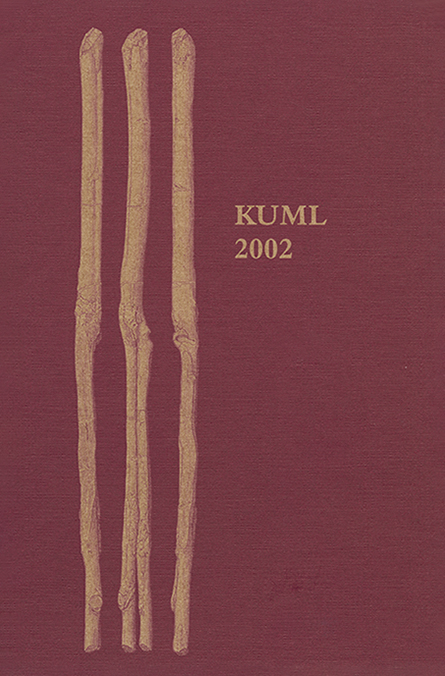Søren H. Andersen 60 år
DOI:
https://doi.org/10.7146/kuml.v51i51.102989Nøgleord:
Søren H. AndersenResumé
Søren H. Andersen reaches 60Søren H. Andersen has always been full of go, whether he was lecturing the students, working in the field, or crossing the museum. yard. It is the research of the early Stone Age that has benefited from his g reat energy and effort, which also made him the most frequent contributor of articles to this yearbook.
Since his first article in Kum 1965, Norslund. A coastal settlement from the early Iron Age, written together with C. Malmros, he has given us more than fifty scholaly articles in both a Danish and international contexts. As a guest professor and guest lecturer at universities all over the world, Søren Andersen has been invited to share his research and comprehensive knowledge of the longest prehistoric period in Denmark with students and colleagues.
The early Stone Age was revived, clarified, and differentiated through Søren Andersen’s almost forty years of work, as it clearly emerges from the new edition of Sesam’s Danmarkshistorie, volume 1, about the early Stone Age, in which he gathers the threads. Localities such as Norsminde, Brovst, Ringkloster, and Tybrind Vig are som e of Søren Andersen’s large-scale investigations, which have already become early Stone Age research classics.
A cohort of students has been trained in archaeology by Søren through his engaged lectures and as participants in some of his numerous excavations throughout the country. With great generosity he invited archaeology students to have their first field archaeology experiences on his excavations, which were always characterized by high spirit s and a firm work discipline.
In the book Århus Arkæologi, which was published a couple of years ago, Søren Andersen writes that as a boy, he had only two things in his head: “either to become an airforce pilot, or to study archaeology”. It was a major gain to Danish archaeology that he chose the latter. Today he is leading The National Museums Centre for Maritime Archaeology in Roskilde, and is also there search chief at the National Museum – both jobs that demands a full-time commitment – and among other things a member of the Danish Research Council for the Humanities. However, he keeps up the speed and still finds time to visit Moesgård, preferably on Monday mornings on the way from his home in Skanderborg to his jobs on Zealand. Moesgård was his place of work from 1967. The first couple of years he was employed as a museum keeper. He was then attached as an assistant lecturer and later as a lecturer at the University of Aarhus until 1997, when he took up his office as a senior researcher at the Centre for Maritime Archaeology.
From the beginning, Søren Andersen made his influence felt on the development at Moesgård, on the university part as well as the museum. Not only archaeology students, but also the public enjoyed his teaching abilities, as he was the driving force behind the museum’s exhibition on the early Danish Stone Age. His cooperation with amateur archaeologists across the country is legendary, and the Open University has enjoyed his fiery soul and narrative skills.
In spite of the many work burdens, Søren is always read y to lend a hand – writing the preface of an exhibition catalogue or discussing future exhibition plans – and he is still an active member of the board of Jutland Archaeological Society.
Jan Skamby Madsen
Moesgård Museum
Translated by Annette Lerche Trolle
Downloads
Publiceret
2002-01-02
Citation/Eksport
Madsen, J. S. (2002). Søren H. Andersen 60 år. Kuml, 51(51), 9–11. https://doi.org/10.7146/kuml.v51i51.102989
Nummer
Sektion
Artikler
Licens
Fra og med årgang 2022 er artikler udgivet i Kuml med en licens fra Creative Commons (CC BY-NC-SA 4.0).
Alle tidligere årgange af tidsskriftet er ikke udgivet med en licens fra Creative Commons.


